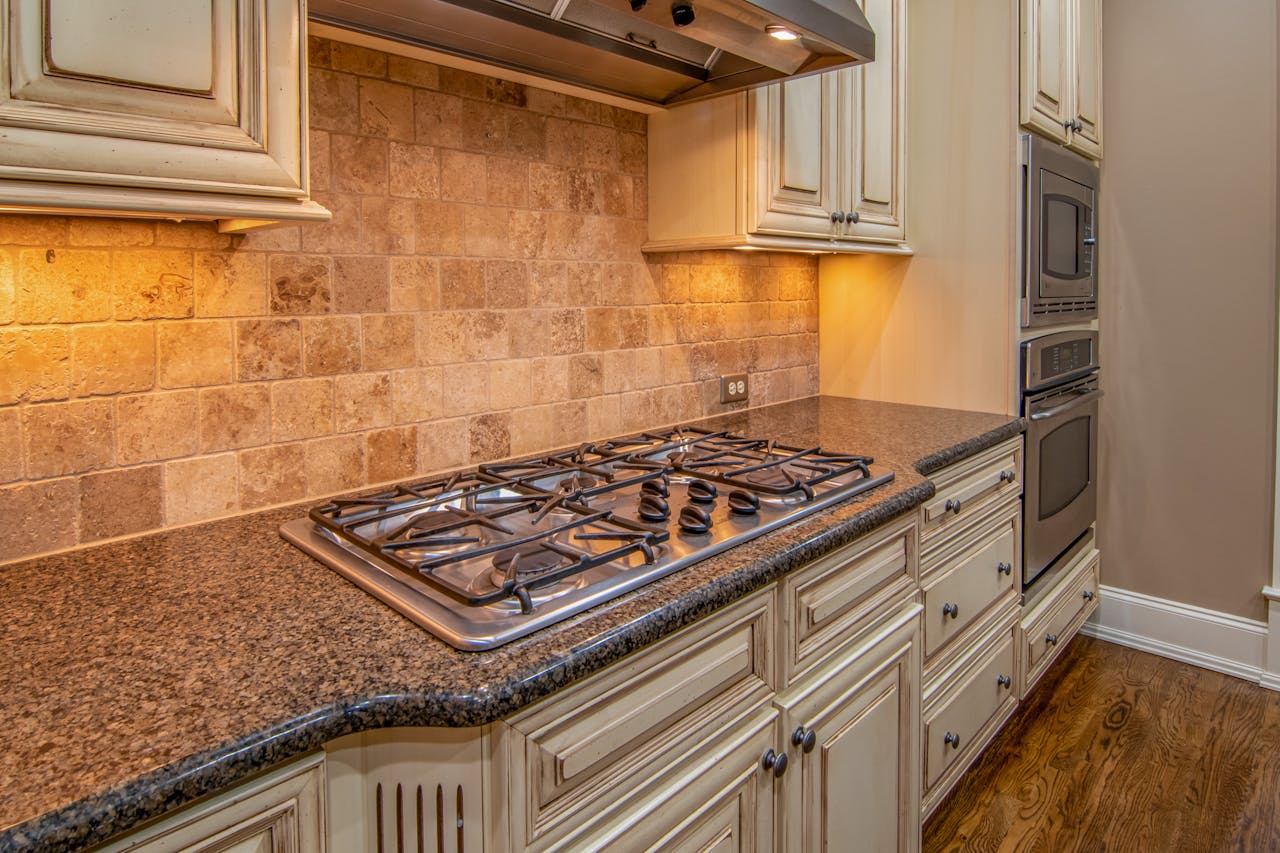Selecting the right material for your kitchen worktops is a critical decision that impacts the functionality, aesthetics, and longevity of your kitchen. Homeowners and individuals planning kitchen renovations often seek durable, low-maintenance solutions that offer both cost-effectiveness and visual appeal. This article delves into two popular choices: granite and quartz. Like knowing the difference between limestone and marble, you also need to know the advantages and disadvantages of both granite and quartz. We will compare these materials based on durability, maintenance, cost, and aesthetics to help you make an informed decision.
Granite Worktops
Durability
Granite is a natural stone renowned for its exceptional durability. It can withstand high temperatures, making it ideal for placing hot pots and pans directly on its surface without damage. Its hardness also makes it resistant to scratches and chips, although it is not entirely impervious to heavy impact.
Maintenance
Granite worktops require sealing upon installation and periodic resealing to maintain their resistance to stains and moisture. While this task is not overly burdensome, it does necessitate some upkeep. Daily cleaning with mild soap and water is usually sufficient to keep granite looking pristine.
Cost
The cost of granite worktops can vary significantly based on the quality and rarity of the stone. Generally, granite is considered a mid- to high-range option in terms of expense. While the initial investment might be substantial, the long-term benefits and durability offer good value for money.
Aesthetics
One of the most significant advantages of granite is its natural beauty. Each granite slab is unique, featuring distinct patterns and colour variations that can add a touch of elegance to any kitchen. The wide range of available hues and finishes allows homeowners to find a style that perfectly complements their kitchen design.
Quartz Worktops
Durability
Quartz worktops, composed of engineered stone, are highly durable and non-porous. This material is scratch-resistant and can handle daily kitchen activities without showing signs of wear. However, extreme heat can cause damage, so it’s advisable to use trivets or hot pads when placing hot items on quartz surfaces.
Maintenance
Quartz worktops are low-maintenance compared to granite. Their non-porous nature means they do not require sealing and are resistant to stains and bacterial growth. Cleaning quartz is straightforward—simply wipe down with a damp cloth and mild detergent.
Cost
Quartz is similarly priced to granite, often falling within the same mid- to high-range category. The cost can fluctuate based on the brand, colour, and pattern chosen. Despite the potentially high initial outlay, quartz’s durability and low maintenance can justify the expense over time.
Aesthetics
Quartz offers a sleek and uniform look since it is engineered. This consistency in appearance can be advantageous for those seeking a clean and modern aesthetic. Quartz is available in a broad spectrum of colours and patterns, including options that mimic the look of natural stone, providing versatility in kitchen design.
Comparing Granite and Quartz
Durability
Both granite and quartz are exceptionally durable materials. Granite’s natural composition makes it highly resistant to heat and scratches, whereas quartz’s engineered structure provides superior resistance to staining and bacterial growth. Your choice may depend on whether you prioritise heat resistance (granite) or ease of maintenance (quartz).
Maintenance
In terms of upkeep, quartz has the edge over granite due to its non-porous surface and no need for periodic sealing. Granite requires more attention to maintain its appearance and resist staining. For busy homeowners seeking minimal maintenance, quartz is the preferable option.
Cost
The cost of both materials is comparable, with variations depending on specific patterns, colours, and brand names. While initial costs may be high, both granite and quartz offer excellent long-term value due to their durability and timeless appeal.
Aesthetics
Aesthetically, the choice between granite and quartz boils down to personal preference. Granite’s natural variations and unique patterns appeal to those who appreciate the inherent beauty of natural stone. In contrast, quartz’s uniformity and extensive range of colours cater to those favouring a contemporary look.
Conclusion
Choosing between granite and quartz for your kitchen worktops involves considering factors such as durability, maintenance, cost, and aesthetics. Granite offers natural beauty and heat resistance, making it suitable for those who value these attributes. Quartz, with its low maintenance and consistent appearance, is ideal for homeowners seeking a modern and practical solution.
Both materials have their merits, and the decision ultimately depends on your specific needs and preferences. Whichever you choose, investing in high-quality worktops will enhance your kitchen’s functionality and visual appeal, ensuring it remains a focal point of your home for years to come.
